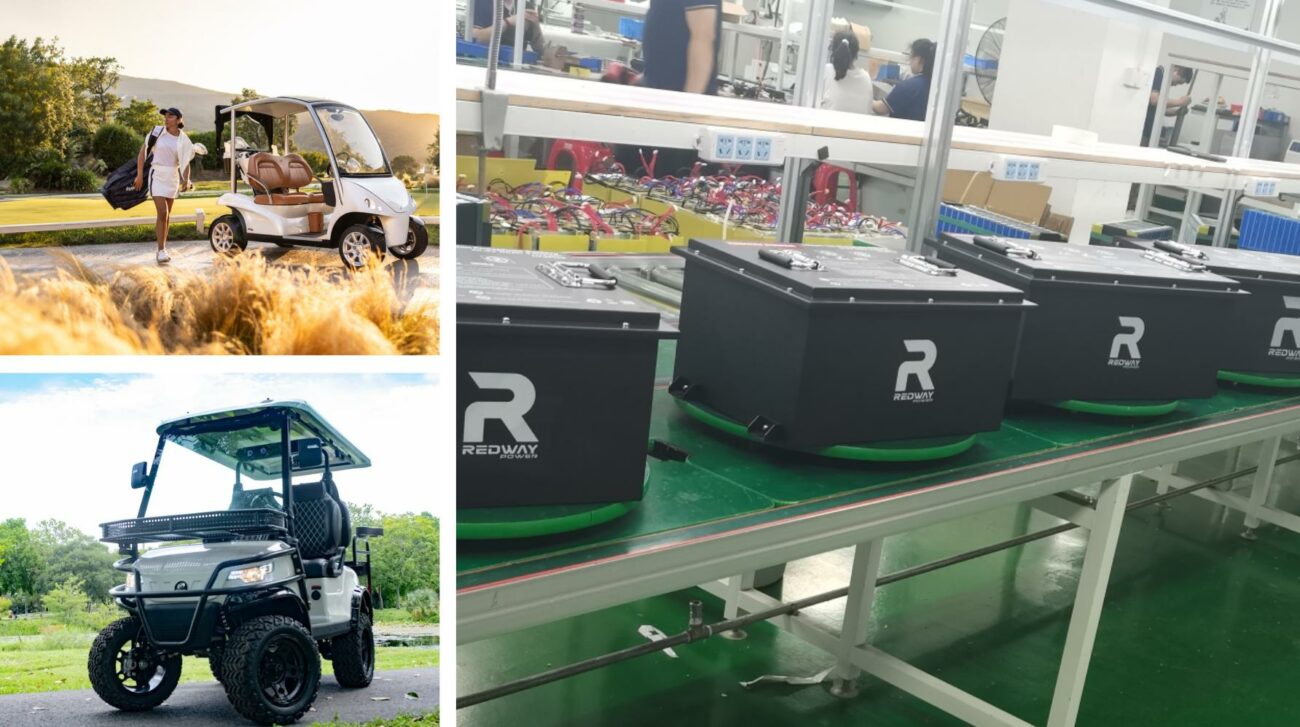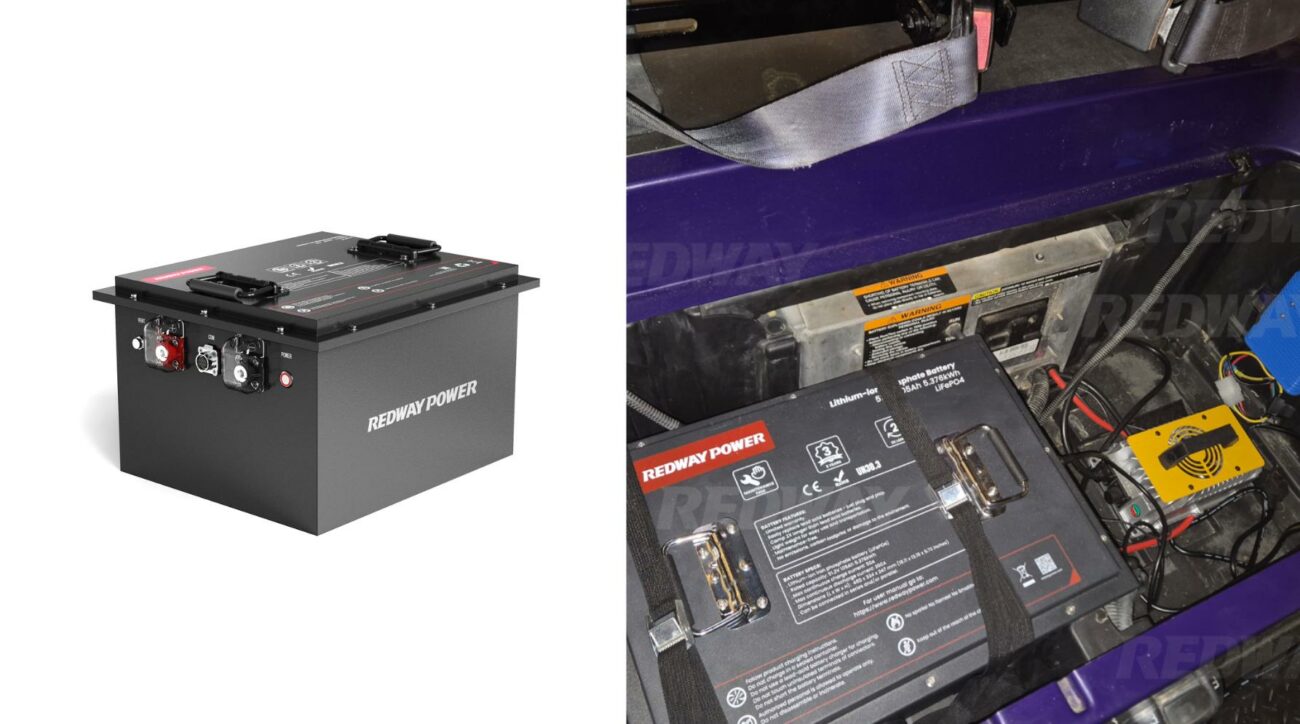Top 12V golf cart batteries in 2024 include lead-acid stalwarts like Trojan’s T-1275 and T-875 models, alongside lithium-ion options such as Battle Born, Universal Power Group, MANLY Battery, and Epoch Batteries. Choosing depends on budget, terrain, and priorities like longevity, maintenance, and weight, with lithium offering superior performance but at higher initial cost.
What Are the Best 12V Golf Cart Batteries for 2024?
The best 12V golf cart batteries blend reliability, durability, and performance. Trojan’s T-1275 and T-875 remain top lead-acid choices for deep cycling and rugged use. For lithium-ion, Battle Born and Universal Power Group balance cost and longevity, while MANLY and Epoch Batteries deliver premium LiFePO4 technology suited for extended life and faster charging.
How Do Lead-Acid and Lithium Batteries Differ in Performance and Maintenance?
Lead-acid batteries are heavier, require regular watering and maintenance, and generally have shorter lifespans (3-5 years). Lithium-ion batteries are lighter, maintenance-free, charge faster, and last 8-10 years or more, though with higher upfront prices.
Which Brands Offer the Most Reliable 12V Golf Cart Batteries?
Trojan leads the lead-acid category with decades of trusted performance. Battle Born and Epoch Batteries are leaders in lithium-ion, offering robust, safe chemistries. Universal Power Group and MANLY Battery provide value-focused lithium alternatives without compromising critical features.
How Does Battery Capacity (Ah) Influence Runtime and Power?
Higher amp-hour (Ah) ratings mean longer runtime and greater energy storage, essential for hilly terrains and longer distances. Selecting batteries with adequate Ah ensures consistent power delivery without stressing the battery pack.
How Should You Choose Batteries Based on Terrain and Usage?
For flat, short-distance use, standard lead-acid batteries like Trojan’s T-1275 suffice. For hilly or extensive usage, lithium batteries are preferable for sustained power and reduced weight. Heavy-duty users benefit from high-capacity lithium solutions.
What Are the Maintenance and Charging Needs for Lead-Acid vs. Lithium?
Lead-acid batteries require periodic watering, cleaning, and careful charging to avoid over or undercharging. Lithium batteries need compatible chargers but are virtually maintenance-free, offering simplified ownership and longer service intervals.
What Are the Cost and Warranty Factors to Consider?
Lead-acid batteries cost less upfront and generally come with a 1-2 year warranty. Lithium batteries cost more initially but often include warranties of 5-10 years, reflecting their longevity and reliability, offering better value over time.
How Long Can You Expect These Batteries to Last?
Lead-acid golf cart batteries typically last 3-5 years; premium models like Trojan can push 5-7 years. Lithium batteries, such as those by Redway Battery, deliver 8-10+ years of dependable service under proper use.
How Does Temperature Affect Battery Performance and Longevity?
Cold reduces battery capacity and output, while heat accelerates degradation and water loss in lead-acid types. Lithium batteries are more resilient to temperature swings but still benefit from moderate operating conditions to maximize lifespan.
Can Mixing Battery Chemistries Affect Your Golf Cart’s Operation?
Mixing lead-acid and lithium batteries or batteries of different voltages can cause severe performance issues and damage. Always match battery chemistry, voltage, and capacity when replacing or upgrading.
What Are the Environmental Benefits of Lithium Battery Technology?
Lithium batteries are lighter, produce less waste due to longer lifespans, and support renewable energy integration. They also avoid toxic lead and acid, contributing to greener golf cart ecosystems.
Chart: Comparison of Top 12V Golf Cart Batteries in 2024
| Battery Model | Chemistry | Capacity (Ah) | Weight (lbs) | Lifespan | Maintenance | Price Range |
|---|---|---|---|---|---|---|
| Trojan T-1275 | Lead-Acid | 150 | 53 | 5-7 years | Watering | $$ |
| Battle Born LiFePO4 | Lithium-Ion | 100 | 31 | 8-10+ years | Maintenance-Free | $$$$ |
| Universal Power Group | Lithium-Ion | 100 | 30 | 8-10 years | Maintenance-Free | $$$ |
| MANLY Battery LiFePO4 | Lithium-Ion | 120 | 29 | 8-10+ years | Maintenance-Free | $$$ |
| Epoch Batteries LiFePO4 | Lithium-Ion | 110 | 32 | 8-12 years | Maintenance-Free | $$$$ |
Chart: Lead-Acid vs. Lithium Battery Maintenance Comparison
| Maintenance Aspect | Lead-Acid Batteries | Lithium Batteries |
|---|---|---|
| Watering | Required regularly | None |
| Charging Time | 8-12 hours | 2-4 hours |
| Weight | Heavier | Lighter |
| Environmental Handling | Requires special recycling | Easier to recycle |
| Lifespan | 3-7 years | 8-12 years |
Redway Battery Expert Views
“In 2024, lithium battery technology truly defines the future of golf cart power systems. Redway Battery strives to provide advanced LiFePO4 solutions that maximize durability, reduce weight, and minimize maintenance. While lead-acid batteries still hold a place for budget-conscious users, lithium’s performance and longevity make it the smart investment for serious golf cart enthusiasts.” – Senior Engineer, Redway Battery
Conclusion
Selecting the best 12V golf cart battery in 2024 hinges on usage, terrain, budget, and maintenance willingness. Trojan remains a powerhouse for lead-acid reliability, while lithium innovations from Battle Born, MANLY, and Epoch provide superior, low-maintenance alternatives with longer lifespans. Redway Battery continues pushing lithium technology forward, helping users harness efficient, sustainable golf cart power.
FAQs
Q: Are lithium batteries compatible with all golf carts?
A: Most modern carts are compatible, but verify charger and voltage specifications before upgrading.
Q: Can I replace 6V batteries with 12V in my system?
A: Yes, but wiring and voltage totals must be recalculated carefully.
Q: What maintenance do lithium batteries require?
A: They are largely maintenance-free compared to traditional lead-acid types.
Q: How do I maximize my battery’s lifespan?
A: Proper charging, avoiding deep discharge, and temperature control extend battery life.







